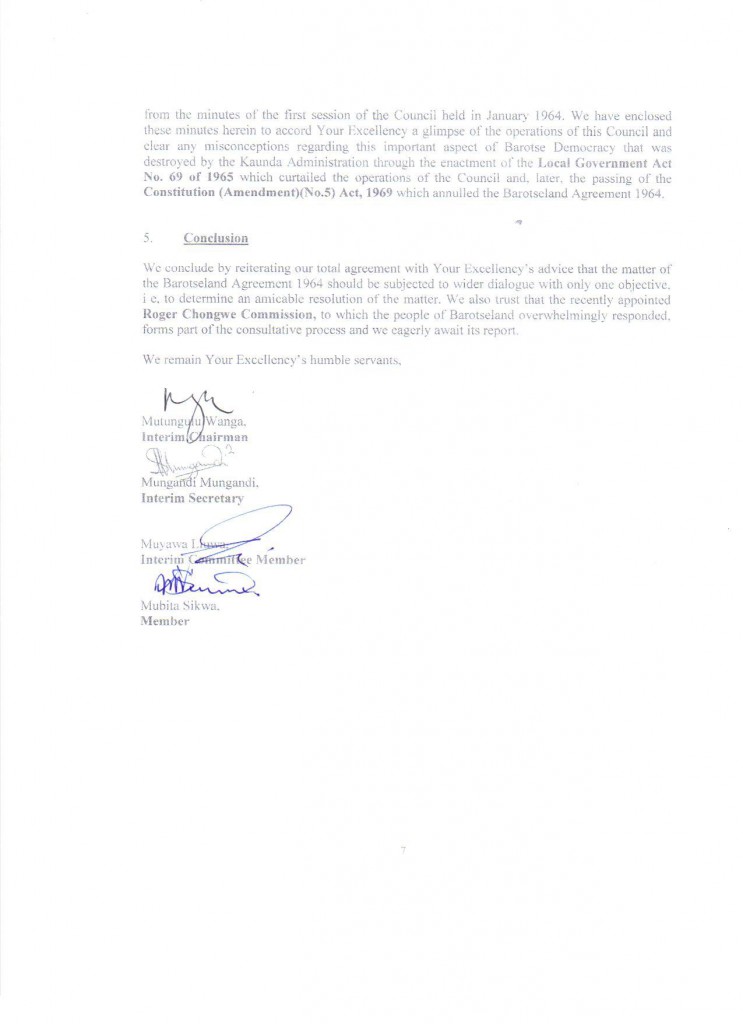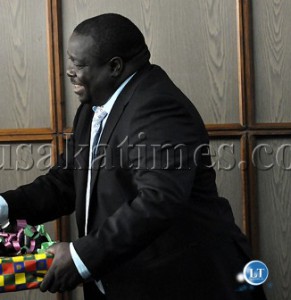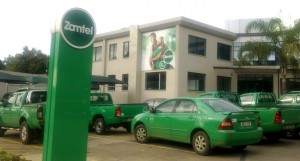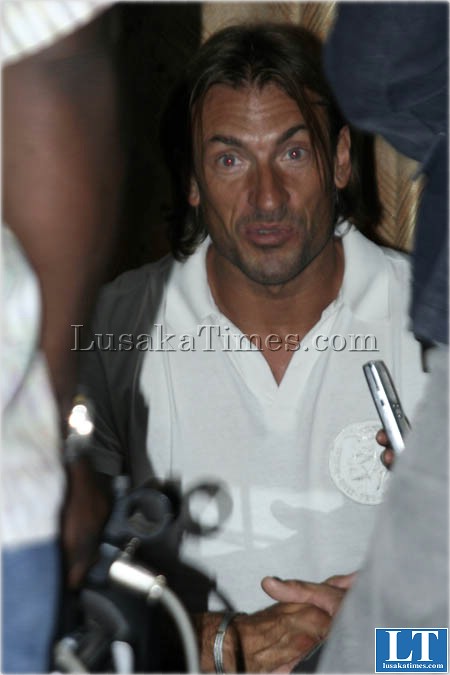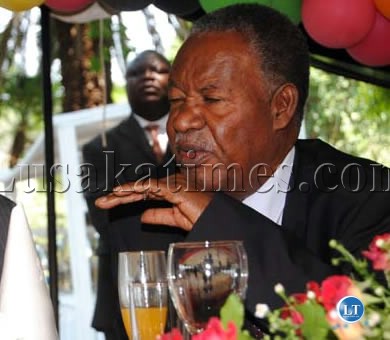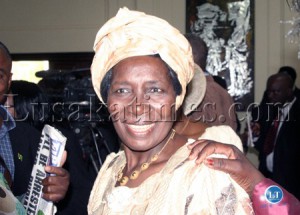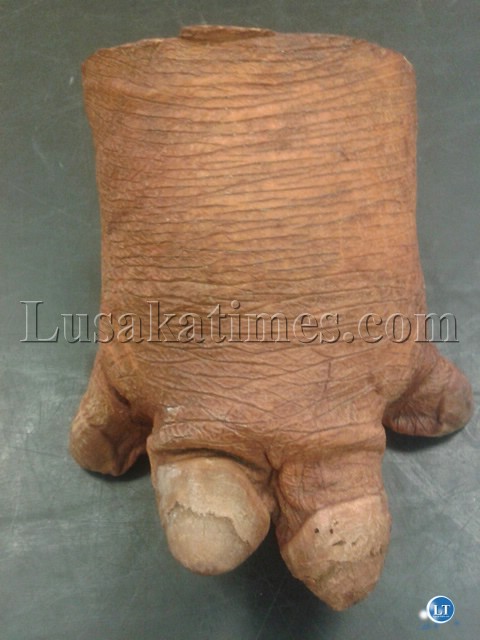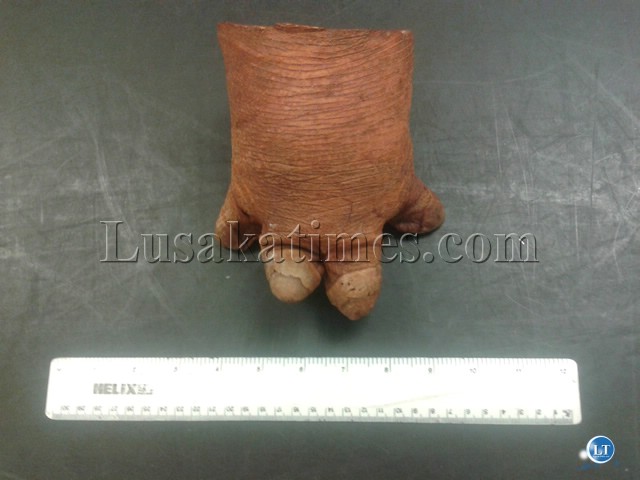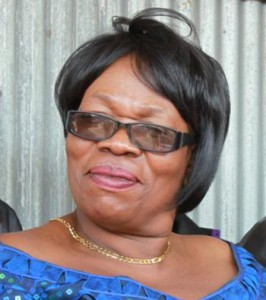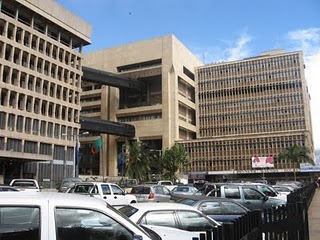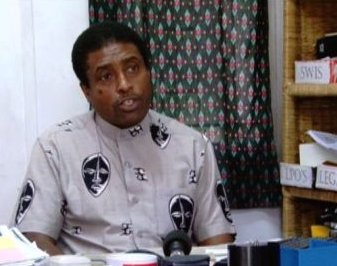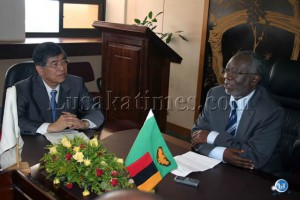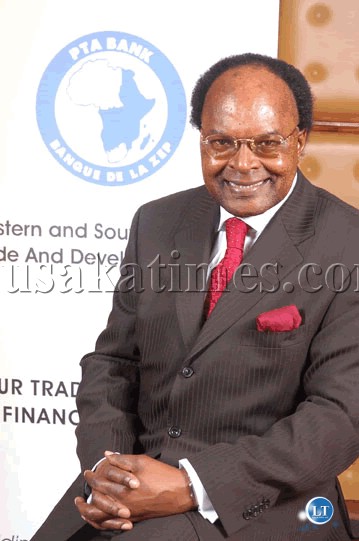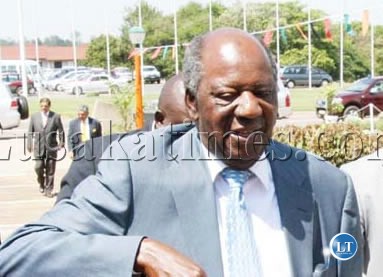The Editor,
I have come across a letter written by MOREBA to the President after the visit of the 3 Barotse Activist Groups to State house. I am convinced that the letter carries very important information that must be made known to the public especially after what has been published in the papers about the presidents remarks to the 12 man deligation to state house.
I am requesting you good media will find some space to publish this important letter that the public may know.
I thank you in advance for considering to publish this important letter.
Yours in national service
Mr.S
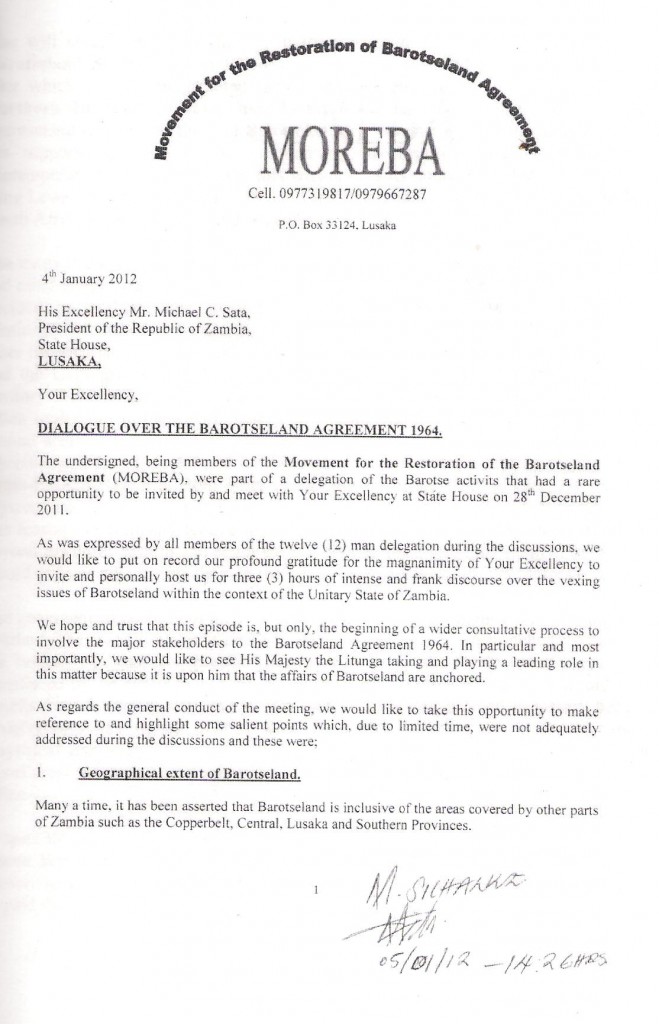
You will note, Your Excellency, that these areas had constituted the former territory of the Barotseland-North-Western Rhodesia which had subsisted up to Thursday 17th August 1911 after which it was amalgamated with North Eastern Rhodesia to form the Protectorate of Northern Rhodesia by way of the Northern Rhodesia Order-in-Council 1911. The claim that Barotseland is as big as the said Barotseland-Northwestern Rhodesia, though widely accepted, is not supported by record. On the contrary, a close examination of both legislative and contemporary history reveals that this territory, as its double-barreled name suggests, comprised King Lewanika’s territory of Barotseland and other areas acquired by Cecil John Rhode’s British South African Company (BSAC) which were administered jointly with Barotseland.
The treaty that the BSAC had signed with Lewanika compelled the company to provide protection and other administrative support to Barotseland and its King. For economic reasons, the company decided to facilitate this support from one point as opposed to having a fully fledged administrative structure for Barotseland alone. In addition the BSAC was in competition with other Imperial land grabbers such as the Belgians in the Congo, the Portuguese in the west and east and the Germans in East Africa. While these foreign powers were in competition for African territory they, nonetheless, respected and stayed clear of those areas that were proven to have fallen under the influence of their fellow competitors. The construction of military garrisons around areas of influence signified ownership of such areas and hence Fort Jameson (Chipata), Abercorn and Five (Mbala) and Fort Rosebery (Mansa) were established by the BSAC to protect North-Eastern Rhodesia from other marauding European land seekers. As for Barotseland and adjacent areas, the treaty with Lewanika provided enough security of occupancy by the BSAC. For this reason the company tended to send out signals that Lewanika’s territory extended to areas beyond his north-eastern and south-eastern boundaries. More importantly, there is no evidence on record of Lewanika laying claim to the said areas and none of his successors has done so.
The geographical position of the Northern Rhodesia territory at the time of amalgamation is shown overleaf. The area shown as “Certificate of Claim A” which had stretched from the Kafue River to the bottom of Lake Bangweulu was referred to as the “Transferred Area”. This area was transferred to the suzerainty of King Lewanika by the colonial authority in order for the area to benefit from his treaty with the British Crown. This was deemed necessary because the people (chiefs) who had signed treaties with the company within the area were considered to be “mythical personages” whose authority could not be relied on. This fact was highlighted in a report prepared for the colonial office by a Mr. Cox of the British South African Company London office.
In spite this land being transferred to him, King Lewanika had insisted that his country did not extend beyond the east of the Kafue River. Instead, he had affirmed that his land was in the western sector and that he had accepted to look after the transferred land on the basis that he would be paid for the work done.
2
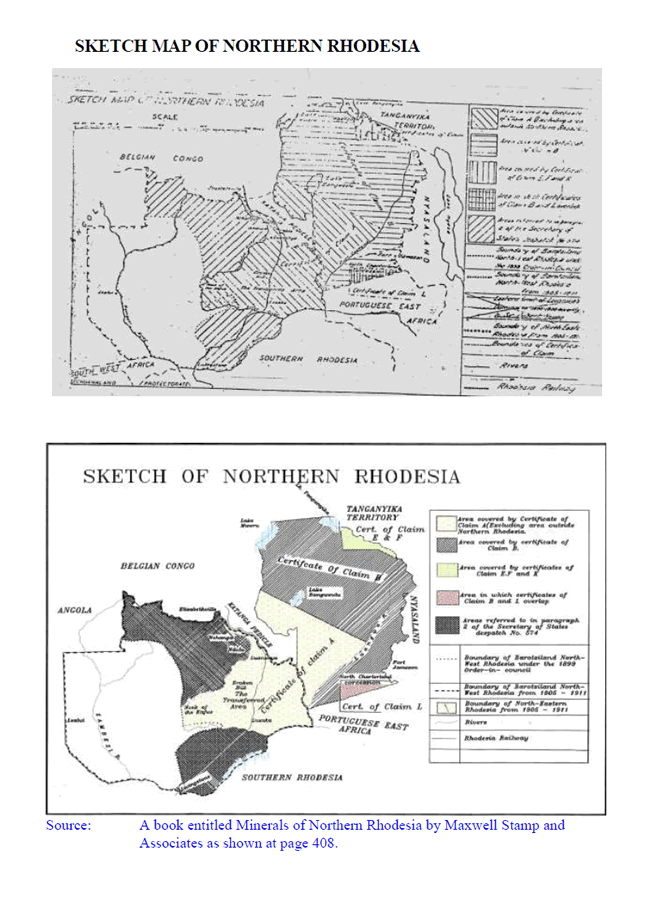
3
To amplify the fallacy of extended jurisdiction of Barotseland to other Provinces, the boundaries of the Barotseland Protectorate was promulgated into law in 1953 as can be seen from the schedule to the Order-in-Council of that year copy of which is herewith attached.
Meanwhile, the Barotseland Agreement 1964 was signed at independence when the said boundaries had been legislated on. To this extent, section 1 of the Zambia Independence Act 1964 and Article 125 (1) of the Zambia Independence Order had stated as follows:-
The Zambia Independence Act 1964
1. Establishment of the Republic of Zambia
“On the 24th October (in this Act referred to as the appointed day), the
territory which, immediately before the appointed day, are comprised in Northern Rhodesia shall cease to be a protectorate and shall, together, become an independent Republic under the name of Zambia and on and after that day, Her Majesty shall have no jurisdiction over those territories”.
The Zambia Independence Order 1964
125. Interpretation;
“In this constitution, unless the context otherwise requires
Barotseland means, the territory that on the 23rd October was comprised in the former Barotseland Protectorate;
The former protectorate of Northern Rhodesia means, the territory that on 23rd October was comprised in the Protectorate of Northern Rhodesia.”
2. State within-a-State
Your Excellency was right to point out that before independence Barotseland was a Protectorate-within-a Protectorate. This is true because the Protectorate of Barotseland became part of the Protectorate of Northern Rhodesia in 1911, albeit, with Barotseland retaining autonomy on local matters. The advent of independence on 24th October 1964 turned the Protectorate of Northern Rhodesia into a State and, by virtue of the Barotseland Agreement 1964 which had provided for Barotseland to proceed to independence as part of Northern Rhodesia while retaining its local autonomy, Barotseland became a State within a State. A close study of the Barotseland Agreement 1964 reveals that Barotseland is a mini State with legislative and executive functions. This is a historical fact which should not be discarded or cause one to be ashamed.
4
The foregoing scenario is not peculiar to Zambia. The Republic of Tanzania is comprised of the former territories of Tanganyika and Zanzibar. While Zanzibar has a Parliament with powers over local affairs these do not impinge on the affairs of the unified State of Tanzania.
The President and Parliament of Tanzania have jurisdiction over Zanzibar and exercise authority over the unified territory on all matters affecting the Common State such as defence, citizenship, immigration and foreign affairs. For this reason, the people of Zanzibar do elect representatives to the Parliament of Tanzania and can also become President of Tanzania. This is notwithstanding the fact that Zanzibar has a regional Parliament to which the people of the main land, Tanganyika, cannot be elected and that Tanganyika has no special Legislative Assembly apart from the Parliament of Tanzania. Conversely, Zanzibar cannot enact legislation that is disadvantageous to the people of Tanganyika main land save that when someone of Tanganyikan extraction is in Zanzibar; they are affected by the local laws of Zanzibar in the same way that Zanzibaris are affected.
In the United Kingdom, Scotland has a Parliament and Chief Minister while Wales and Northern Ireland also have their Legislative Assemblies. These regional authorities administer the territories within their devolved powers limited to affairs affecting their regions but not impinging on the whole United Kingdom. England, which is the parent state of the United Kingdom, does not have a separate Legislature and Executive because its Westminster system serves the whole United Kingdom and the other territories elect representatives to this Parliament. It is easier for a Scottish or Welsh to be elected Prime Minister of the UK than for an English person to be Chief Minister of Scotland.
With the foregoing scenario in mind, Your Excellency, we reiterate that the special position of Barotseland in Zambia is a product of history which can not be written off arbitrarily.
3. The Litunga’s Ceremonial Dress
The Litunga’s uniform is part of our heritage as former British Protected Persons. There are many attributes of our national life that are influenced by our colonial history and this includes the fact that we are part of the global village. For example, we do not have to wonder why we are communicating with Your Excellency in this ‘colonial’ language.
This impressive military dress was given to His Majesty King Lewanika during his visitation to England as an honour for his previous activities coupled with his attendance to the coronation of His Majesty King Edward VII in 1902. This was an unbeatable and unparalled feat which cannot be compared with any other person’s achievement especially at the time at which that event took place.
To expand the foregoing, we need to ask ourselves what is so African about the ceremonial attire of our military personnel, including that of the Commander-in-Chief. What is Zambian about the official dress of the Judges of the High and Supreme Court, our Church Leaders’ attire and the Graduation Costume of the University of Zambia? We should challenge some of our serving Members of Parliament to turn up in the National Assembly Chamber clad in the Ila attire of animal skin and then watch the reaction of the Honourable Mr. Speaker. We also recall that
5
Honourable Panji Kaunda was recently kicked out of a State House swearing-in ceremony because he was not dressed in a European suit.
The territory of Zambia is well defined in boundaries and we, its citizens, are ready to shed our blood in defence of Zambia’s territorial integrity. This is notwithstanding the fact that this territory was fashioned for us by colonial grandmaster Cecil John Rhodes. Is it not surprising that the Barotseland Agreement is often dismissed as a colonial relic when many characteristics of the Zambian nation, such as the State House buildings and the personal names of some of our people, including leaders, are from the colonial past? Indeed, what becomes of us if we rid ourselves of all aspects of our colonial heritage?
4. Barotse National Council
During the discussions Your Excellency had wondered whether the representation in the Barotse National Council extended to all Lozi tribes such as Nkoya, Mbunda and Chokwe. We reiterate that the elected members of Council were elected on the basis of universal suffrage from their Districts of residence and that this system could not stop tribes which are empowered by the vote from electing their ‘own’ people to the Council.
Further, the Litunga’s nominees were picked from the various lilalos (chiefdoms) in which all tribes reside, Nkoya and Mbunda included. Under this nomination system the Head Indunas of Mwene Mutondo, Mwene Kahare, Mwene Chiengle and Mwene Kandala could be picked to sit on the Council as representatives of their chiefdoms.
Arising from the foregoing selection method the Barotse National Council which was elected in 1963, as part of the independence process, had, among some of its members, the following:-
Elected Councilors: Mongu District
C.H.L.Masosa – Mbunda tribe
M. Katota – Mbunda tribe
Mankoya (Kaoma) District
A. J. Kapatiso – Nkoya tribe
K.B Kalyangu – Mbunda tribe
A.K. Mutaima – Nkoya/kaonde
S.K. Lyoka – Nkoya tribe
M. Mutti – Mbunda tribe
Sesheke District
Kopano. Mutondo – Nkoya tribe
In addition to the above elected councilors the Mweneshihemi who was a senior Induna representing the Mwene Mutondo Chieftinency at the Naliele Kuta was one of the Litunga’s nominees.
The foregoing list is only reflective of those members from tribes considered to ‘non lozi’ by our detractors. The full list of both elected and nominated members of the Council may be viewed
6
